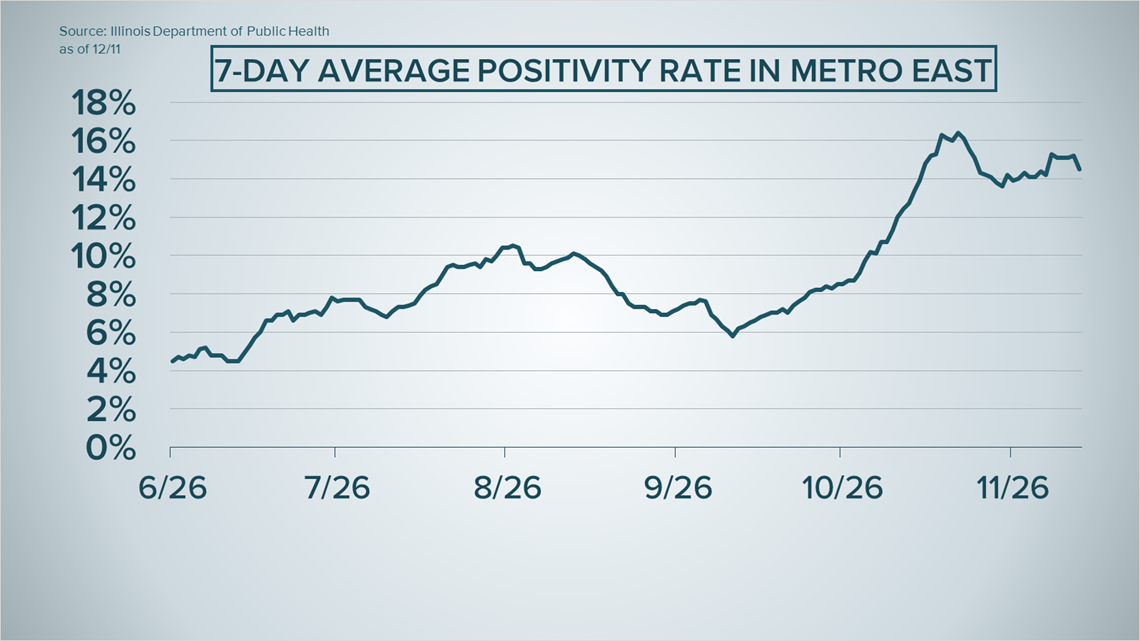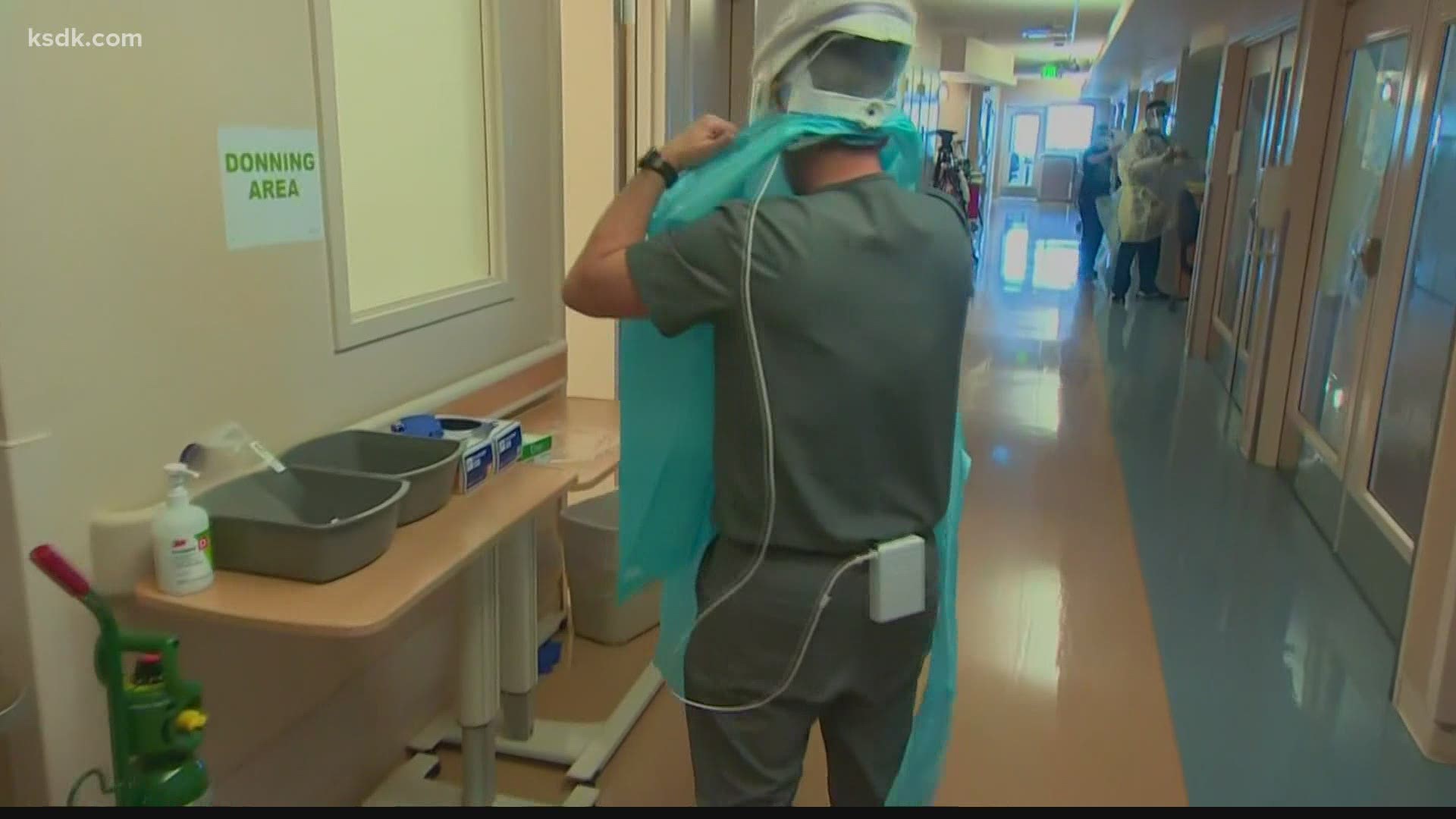ST. LOUIS — The leader of the St. Louis Metropolitan Pandemic Task Force said recent vaccine news is a cause for hope, but months of work are still needed to limit the spread of the coronavirus.
"It's is a ray of hope in a dark world, but we can't become complacent," Dr. Alex Garza said in a Friday afternoon briefing. "We have a long way to go to get to that place where we can change the course of this war on COVID."
Dr. Garza said it will take months to distribute enough vaccines to start to end the pandemic. He said staying focused on the next few months will be vital in preventing coronavirus-related deaths and illness until enough people can be vaccinated.
Dr. Garza said the region is not making significant progress in the "war against the virus", which is putting pressure on the health care system. On Friday, the task force said ICUs in the area are at 90% of their total staffed bed capacity, and total hospital capacity was at 82%.
"The pressure the war is putting on our health care systems is dangerous for everybody in the entire region," Dr. Garza said, "and every day, that pressure puts more and more people at risk."
On Friday, Dr. Garza reiterated that gathering with people who live in separate houses will contribute to the spread of the virus. He said it was particularly concerning with the upcoming holidays.
"Traveling, shopping in crowded stores, going to parties and gatherings with people from multiple households all give the virus a chance to spread and make things worse for all of us," Dr. Garza said. "So do what you can to protect you and your family: don't travel, plan to celebrate at home with the people you live with, stay home as much as you can, look for ways to support you local businesses, though ... and wear a mask whenever you're outside your home."
The following data are the combined figures from the four major health systems (BJC HealthCare, Mercy, SSM Health, St. Luke’s Hospital) that are part of the task force, for Dec. 11.
- New hospital admissions (data lagged two days) increased from 110 yesterday to 134 today.
- The seven-day moving average of hospital admissions (data lagged two days) increased – from 116 yesterday to 119 today.
- The seven-day moving average of hospitalizations decreased from 888 yesterday to 887 today.
- Inpatient confirmed COVID positive hospitalizations decreased – from 898 yesterday to 889 today.
- Inpatient suspected COVID positive hospitalizations decreased – from 93 yesterday to 77 today.
- The number of confirmed COVID positive patients in the ICUs increased – from 192 yesterday to 197 today.
- The number of confirmed COVID positive patients on ventilators remained the same at 123 today.
- The number of COVID deaths decreased – from 24 yesterday to 20 today.
- The seven-day moving average of COVID deaths decreased – from 22 yesterday to 21 today.
- Across the system hospitals, 146 COVID-19 patients were discharged to home yesterday, bringing the cumulative number of COVID-19 patients discharged to 12,252.
- Today, staffed bed hospital capacity is at 82%, an average across our task force hospitals. The ICU’s are at 90% of their total staffed bed capacity.
In Missouri, the health department reported 338,604 cases and 4,481 deaths as of Friday, a single-day increase of 3,900 cases and 31 deaths.
The state also reported 22,893 new PCR tests in the last 24 hours, bringing the state's total to 3,292,575.
The state's dashboard said the 7-day positivity rate was 18.7%, down slightly from Thursday.

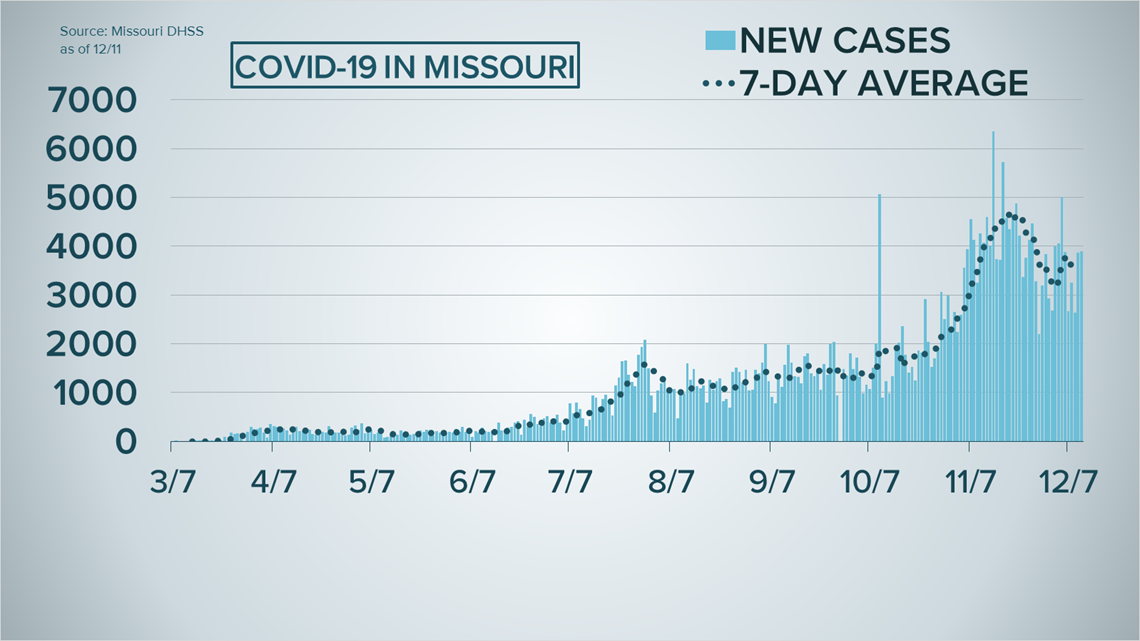

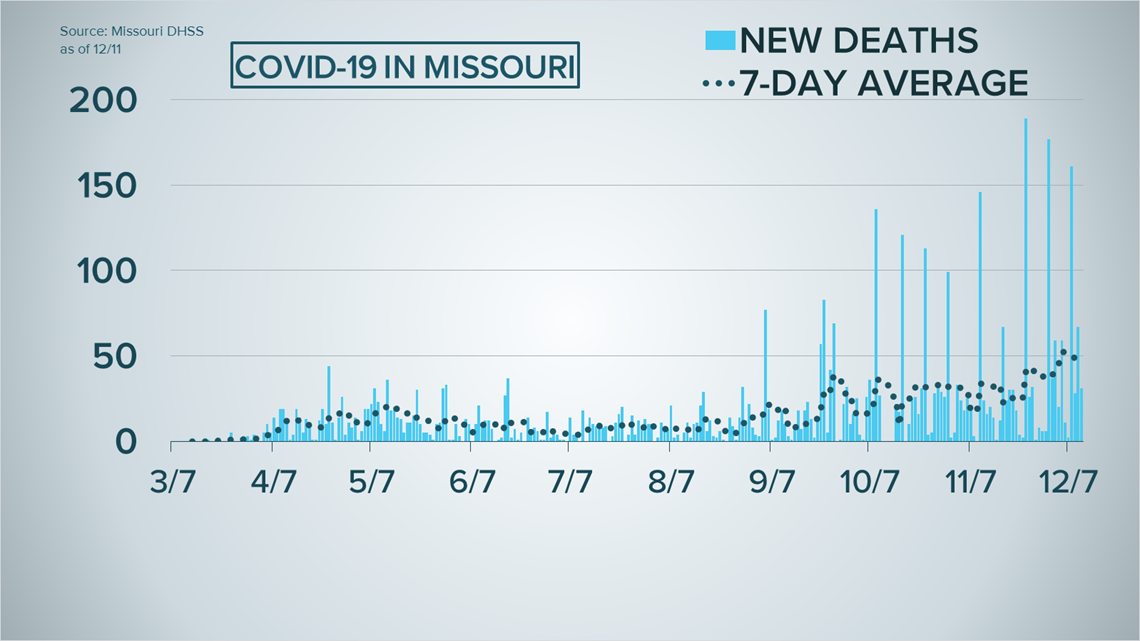

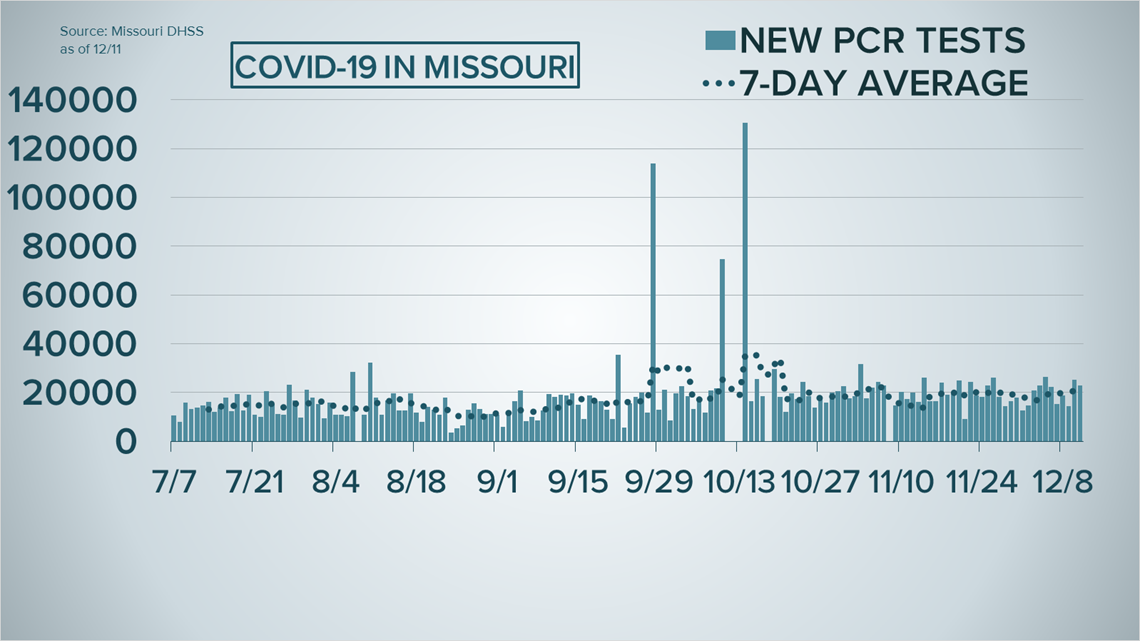

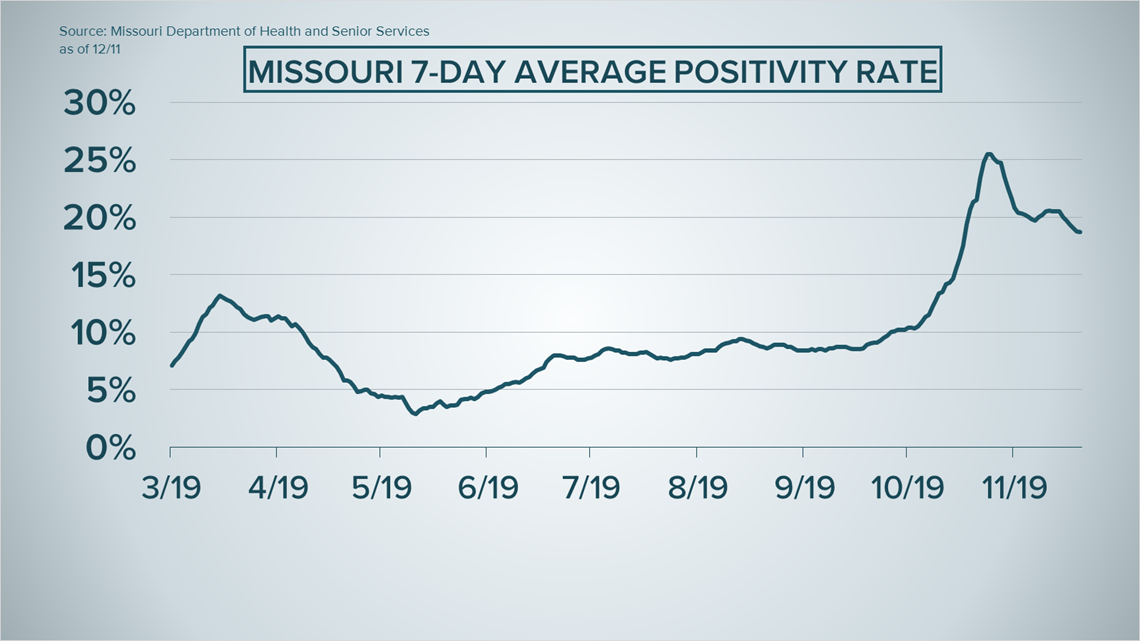
In Illinois, the health department reported 832,951 cases and 14,050 deaths as of Friday, a single-day increase of 9,420 cases and 189 deaths.
The department also reported 104,448 new PCR tests, bringing the total number of tests reported to 11,586,296.
Illinois' 7-day average positivity rate has been decreasing slowly over the last week, and the positivity rate on Friday was 9.4%.

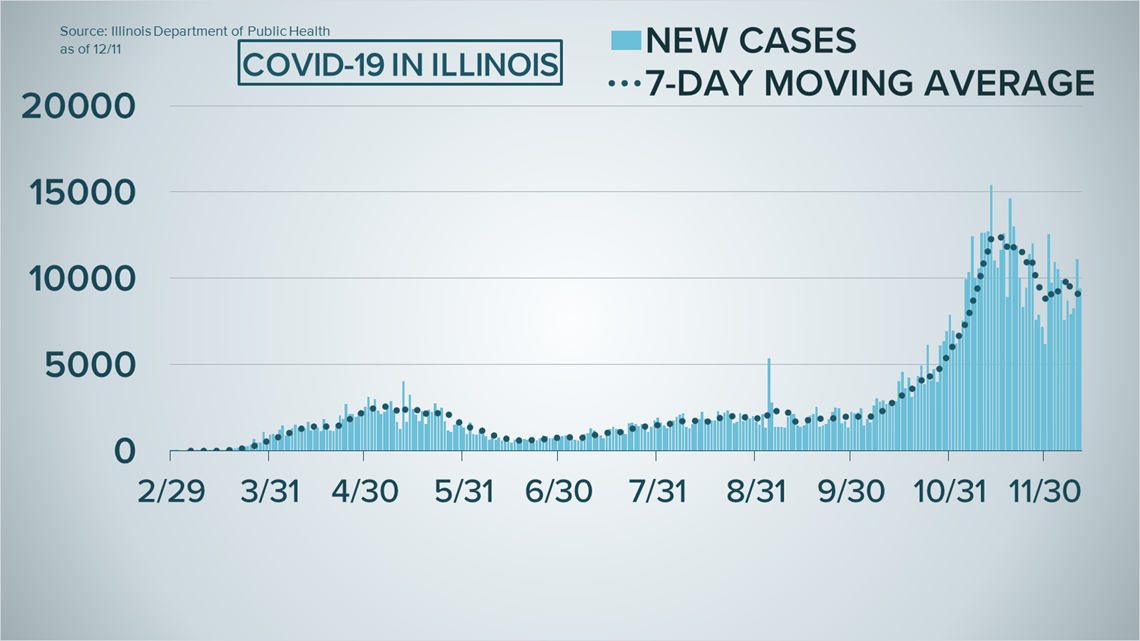

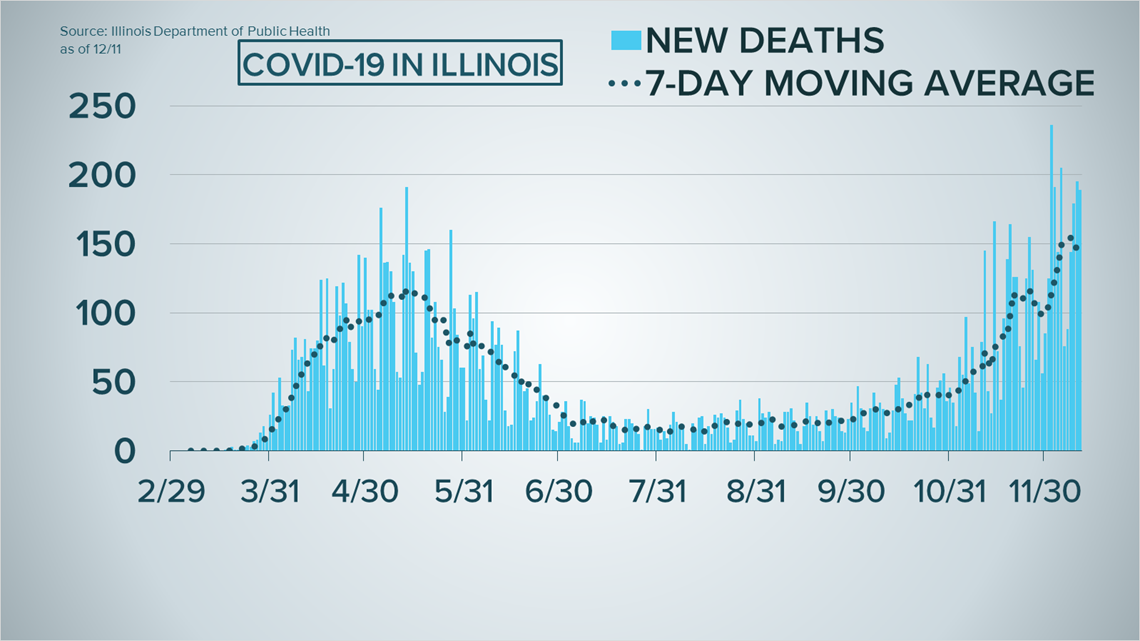

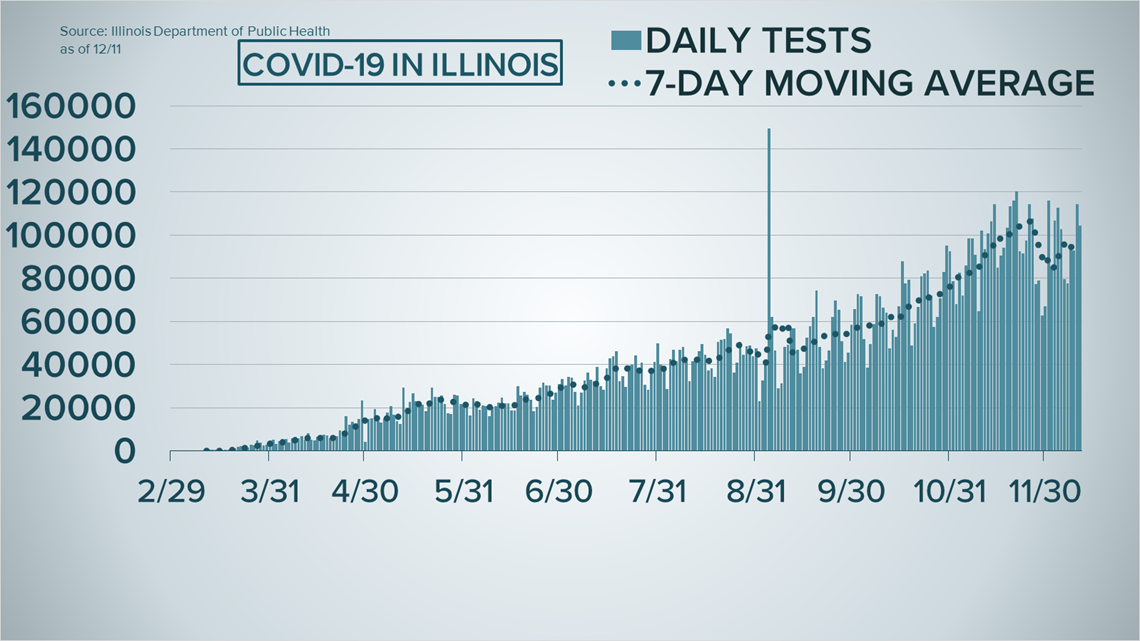

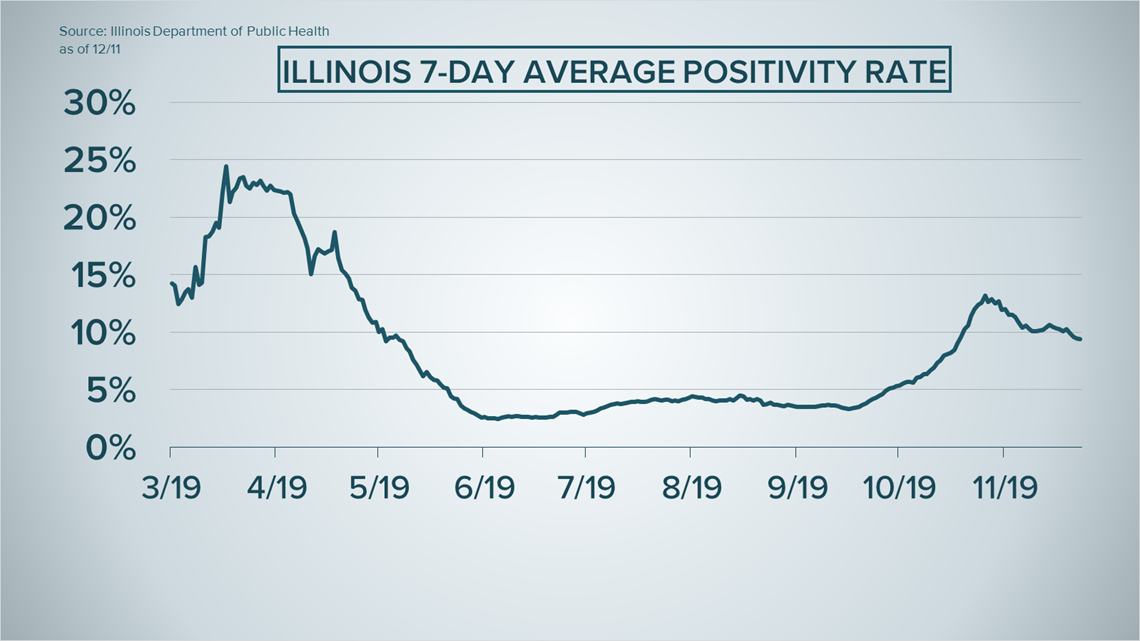
In the Metro East, the positivity rate was 14.5%, which was down from 15.2% reported the previous day. The positivity rate comes from the state's regional data dashboard.

